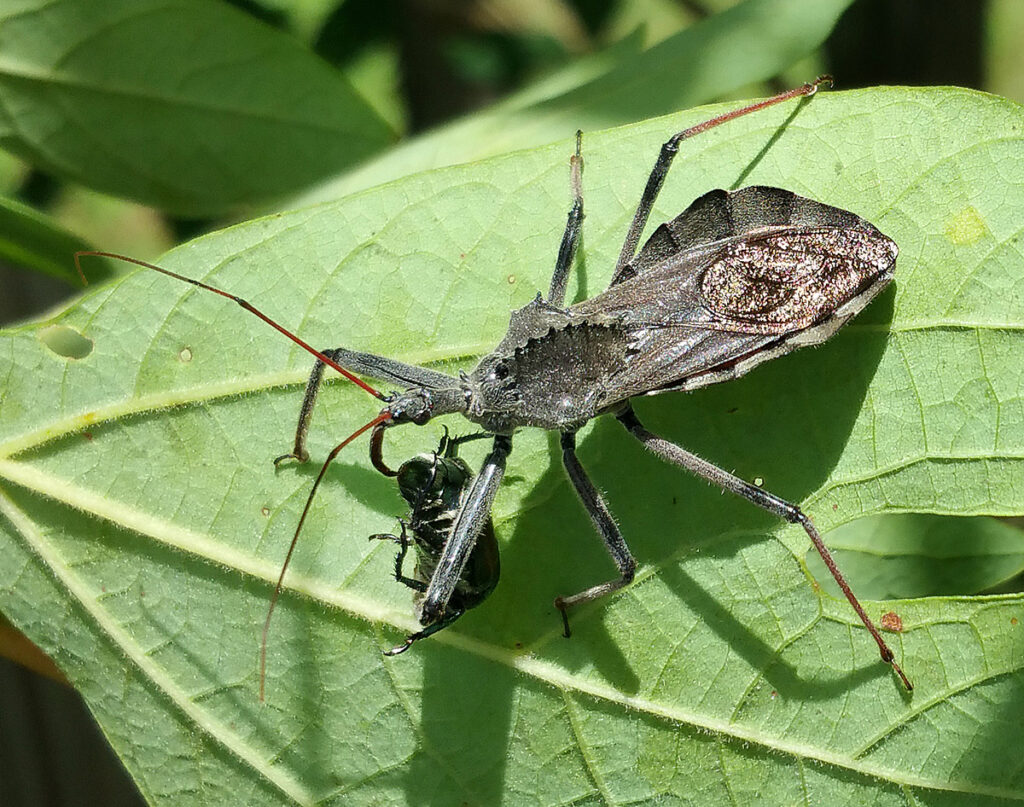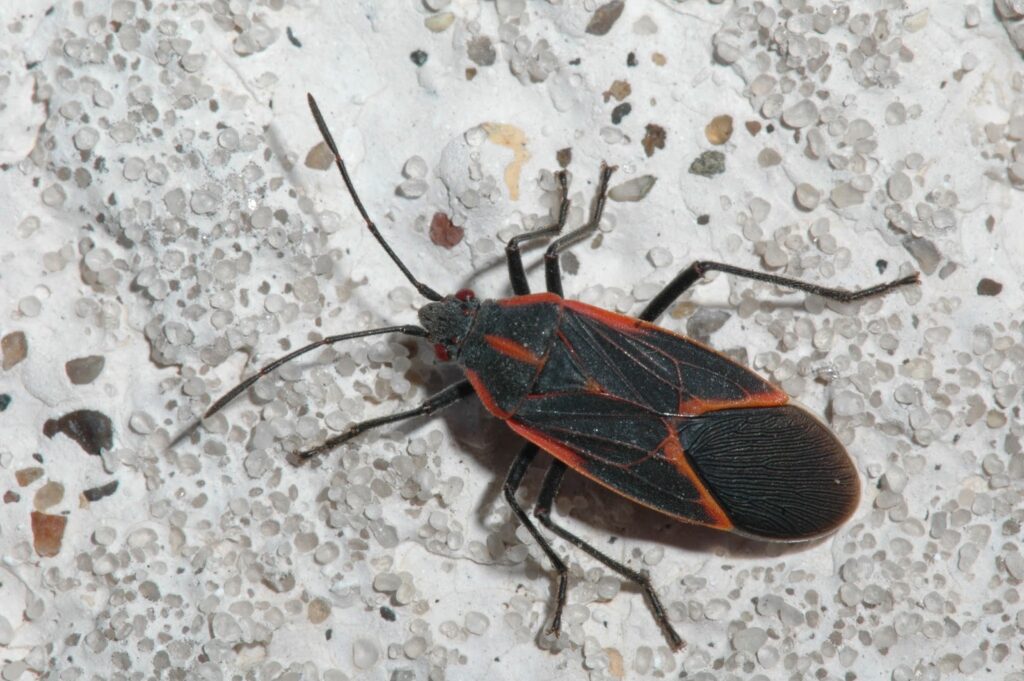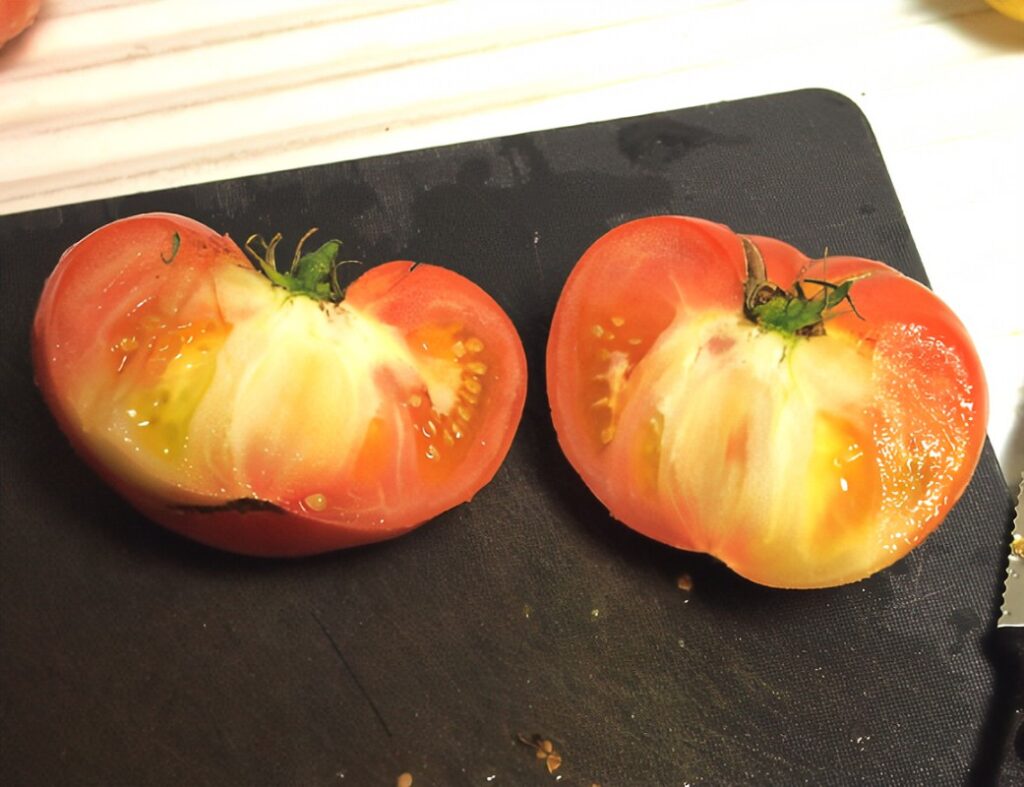In the garden this week, get ready to start spraying the perennial weeds like thistle, bindweed, and dandelions in the lawn and garden. In the lawn use a selective herbicide like a mix with 2,4-D. In the garden after harvesting, you can use a nonselective herbicide with glyphosate like Roundup. You can spray the weeds up to a hard freeze of below 28 degrees.
While on the lawn, you can place a fall application of fertilizer on the grass. Do this before the second week in October. A fertilizer of nitrogen and phosphorus helps the grass go into winter healthier.

I received a picture of an assassin bug in the garden. These true bugs are very beneficial in eating a lot of little predators. Do not handle them because they cause a very painful bite. Just let them do their thing.

The bug of the week is the boxelder bug, a true soft-bellied orange and black insect. They feed by sucking the plant juices out of mainly maples (which the boxelder is one of) and ash trees. When touched they will give off an unpleasant order (they are sometimes called stinkbugs) which in turn prevents spiders and birds from eating them. When the temperature cools these bugs will swarm, finding the south side of trees and your house or garage for warmth. Also, they will leave a brown stain if squished. If you have a swarm of these bugs, you can use a soapy insecticide sprayed directly onto them.

If you have had tomatoes that ripen poorly with hard centers, this was due to the excessive heat earlier.
Dig your summer bulbs like glads, tuberous begonias, cannas, etc. after a hard freeze or when the tops die down. Store in boxes in a cool, dry area where it will not freeze. I leave the soil on the bulbs, place them in boxes, pour on some dry peat moss, and place it in the basement.
It is time to seal the house from mice and bugs. Use steel wool on cracks in the foundation and caulk around outdoor window and door sills. Now is the time to use a perimeter spray around the house to prevent bugs and spiders from coming in. You might have to spray twice depending on how long the fall is.
A new study has found using heavy plastic around plants with mulch in a landscape causes a lot of harm to plants. It prevents the soil from drying out and prevents an exchange of oxygen in the soil which the roots need. Using landscape fabric is much better than plastic. Also, a wood mulch is better than rock because of the heat the rock can give off.
